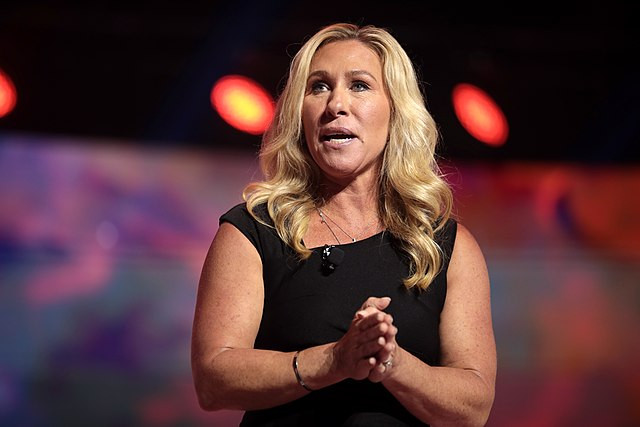In an unexpected move that has sent ripples through Capitol Hill, Rep. Marjorie Taylor Greene (R-Ga.) has launched a bid to remove Speaker Mike Johnson (R-La.) from his position, signaling a potential return to the chaos that enveloped the House last fall. This initiative has sparked a mix of outrage and concern among Republicans, particularly as the party seeks unity ahead of the upcoming November elections.
Greene's resolution, while not immediately actioned, threatens to plunge the House, and particularly the Republican conference, into disarray reminiscent of the events that led to Rep. Kevin McCarthy's (R-Calif.) ousting as Speaker. The move underscores the persistent internal strife within the GOP, detracting from its policy goals and providing Democrats with fodder to question the party's governance capabilities, according to The Hill.
"Speaker Johnson is put in a very difficult situation," noted Rep. Greg Murphy (R-N.C.), expressing a sentiment shared by many within the party who view the continuous infighting as detrimental to the Republican cause. The backdrop to Greene's motion is Johnson's recent endorsement of a $1.2 trillion government funding package, which, despite being a product of bipartisan negotiations, has drawn the ire of fiscal conservatives within the party.
The funding bill, crucial to keeping large swathes of the government operational through the end of the fiscal year, has been criticized by Greene and like-minded Republicans for aligning too closely with Democratic priorities. "It was completely led by Chuck Schumer, not our Republican Speaker of the House," Greene lamented, highlighting the dissatisfaction with the perceived capitulation to Democratic demands.
The Wall Street Journal's editorial board, a bastion of conservative thought, has been particularly scathing in its critique of Greene's actions, dubbing her "Mayhem Taylor Greene" and likening her tactics to those of climate change activists known for their disruptive protests, as reported by Newsweek. The editorial lambasted the lack of a coherent strategy among the most conservative factions of the party, accusing them of preferring spectacle over substantive policy achievements.
Amidst this turmoil, some Republicans have voiced their frustrations more openly, criticizing the focus on internal conflicts over pressing national issues such as inflation and border security. Rep. Mike Lawler (R-N.Y.) encapsulated this sentiment, emphasizing the disconnect between the party's policy positions and the public's patience for internal discord.
As Greene contemplates the timing of her motion, the broader implications for the House and the Republican leadership remain uncertain. The potential for a leadership vacuum, the prospect of Democratic intervention, and the strategic considerations surrounding foreign aid, particularly to Ukraine, loom large over the discussions.






